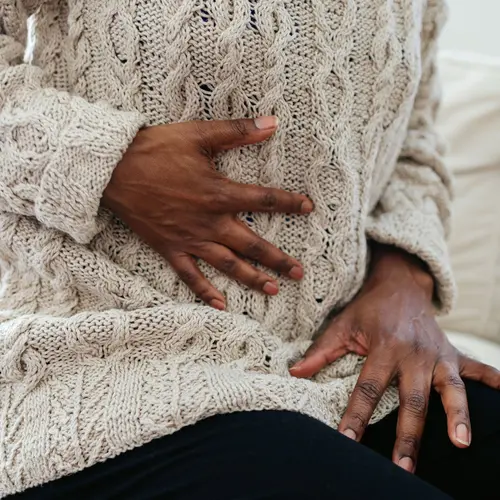Fulminant colitis is a somewhat rare but serious form of ulcerative colitis (UC). UC causes inflammation and sores in the lining of the colon.
It doesn’t happen to most people who have UC. Less than 10% of people with it get fulminant colitis, usually during their first attack of symptoms. The whole lining of the colon becomes inflamed, causing severe symptoms like bloody diarrhea and belly pain.
Fulminant colitis is a medical emergency. You'll need to go to a hospital right away for treatment with medicine, and possibly surgery.
Causes
UC is the most common cause of fulminant colitis. Crohn's disease, the other type of inflammatory bowel disease (IBD), can sometimes cause this problem, too.
Fulminant colitis inflames and damages the walls of the colon. Extreme swelling in the colon walls can cause a condition called ileus. This is when the walls of your intestines widen and they can't squeeze well enough to push digested food through.
As ileus gets worse, the colon may become very wide. Gas and poop can get trapped inside the intestine because they can't move through. This is called toxic megacolon. It's a life-threatening emergency. Sometimes, people get severe bleeding or a body-wide infection called sepsis. Another possible complication is a tear or hole called a perforation in the colon.
You're more likely to get fulminant colitis if you have an infection with bacteria or a virus. Your risk is also higher if you take corticosteroids or other medicines that suppress your immune system.
Symptoms
Fulminant colitis causes symptoms like these:
- Fever
- Swollen and tender belly
- Bloody diarrhea more than 10 times a day
- Fast heartbeat
- Low blood pressure
Diagnosis
Fulminant colitis can be hard to diagnose because it can look like a flare of ulcerative colitis or Crohn's disease. Your doctor may have to do a few tests to find out what’s going on. It's important to diagnose this condition correctly, so you can get started on the right treatment.
Tests to diagnose fulminant colitis include:
- Blood tests
- Tests of your poop to see if you have an infection
- X-ray or computed tomography (CT) scan of your belly
- Sigmoidoscopy -- a flexible tube with a camera on the end that lets your doctor see inside your colon
- A biopsy to remove and test a piece of tissue from your colon
Treatment
Treatment for fulminant colitis happens in a hospital where doctors and nurses can monitor you closely. Your medical team will check your blood pressure and other vital signs often.
You'll get fluids, food, and electrolytes like potassium and magnesium through a vein in your arm (IV). If you have an infection, you'll also get antibiotics to treat it.
Treatment for fulminant colitis starts with corticosteroid medicines, which you get through an IV. If steroids don't help you feel better, your doctor may give you cyclosporine or the biologic drug infliximab (Remicade) to calm your immune system.
You might need surgery if medicines don't help, or if you have:
- A hole (perforation) in the wall of your colon
- Toxic megacolon
- Severe bleeding
Colectomy is surgery to treat fulminant colitis. The surgeon removes the damaged part of your colon and makes a pouch inside your body to hold stool, so that you can poop normally.
Prevention
Fulminant colitis may be hard to prevent because it often happens during the first attack of UC symptoms.
Once you are diagnosed with UC, follow the treatment plan your doctor prescribes to prevent damage to your colon. Medicines for UC bring down inflammation and give your colon a chance to heal. You may take more than one medicine at a time.
Outlook
Fulminant colitis can lead to toxic megacolon and a hole in the colon, which are emergencies. To have the best outcome and avoid these complications, stick to the UC treatment plan your doctor prescribed.

